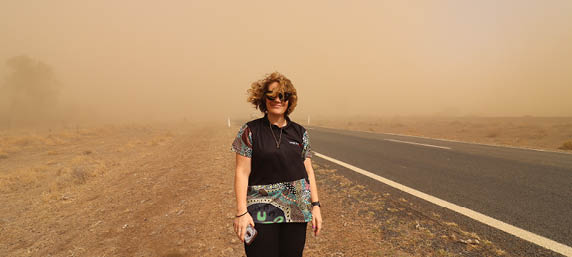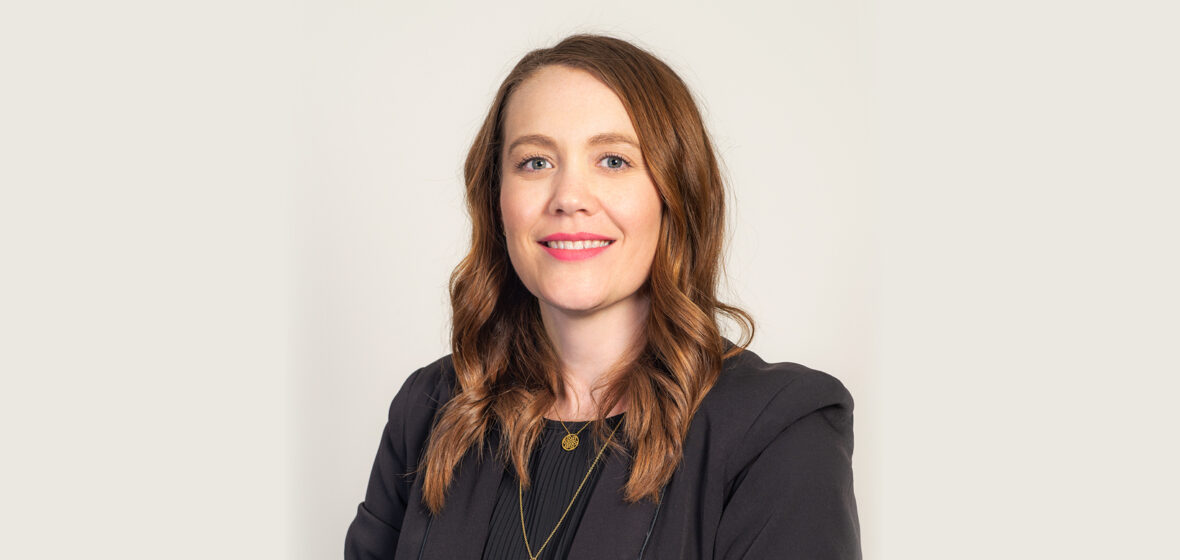Embedding Aboriginal perspectives into law is at the core of everything Yuin and Bidjigal woman, Kimberley Wilson does. The social justice solicitor has been at the helm of Legal Aid NSW’s Aboriginal Services branch since June 2022, and says it is the greatest privilege of her career. Prior to her appointment as Director, Wilson worked as a solicitor within the branch and as a civil law solicitor providing legal services to Aboriginal women in custody, and to the Moree community. She shares her thoughts on opportunities within the sector, managing burnout and her non-linear journey into law.
What are you most passionate about in the law?
I am passionate about social justice, but I suspect most people working in the legal assistance sector would say that. I am most passionate about ensuring Aboriginal people and communities that require legal help are provided a service that is culturally appropriate and meets their specific needs. 21 per cent of Legal Aid NSW’s services are provided to Aboriginal and Torres Strait Islander people. It is absolutely necessary that we provide a high-quality targeted service that is adequate and responsive to our clients, and the community more broadly. That starts with us participating in deep and meaningful engagement with Aboriginal communities and engaging in an ongoing process of learning. It’s about building trust and respect, and I am committed to doing that work.
Why did you want to work in Aboriginal Services and legal assistance?
It might sound cliché, but I wanted to become a lawyer because I wanted to help people. Quite honestly there wasn’t any other option for me other than working in the legal assistance sector. I’m lucky to have gained a role at Legal Aid because it has allowed me to assist people, and in particular Aboriginal people and communities to assert and fight for their legal rights.
But I didn’t take a straight line to get there. I went to a really small high school in Sydney’s southeast, and I was one of the only two students that wanted to go to university. I also knew realistically I wouldn’t get the marks to be accepted into a law. I suppressed that aspiration and instead completed an Arts degree majoring in Aboriginal studies. But that was a tough slog, and half-way through I took some time off study. I found myself working at the National Native Title Tribunal, which at the time was responsible for assisting native title claimants and parties to resolve claims through a dispute resolution process. Somehow through that period, I managed to finish my degree and a few years later I was working at the Federal Court of Australia within the native title jurisdiction. My interest in the law was enlivened and I completed my law degree during my time at the court. I had the benefit of observing the court process, but I also had the privilege of witnessing a number of native title claim groups assert their rights and obtain recognition of what has and always will be their land, culture and customs.

What are some of the main challenges and opportunities facing the legal assistance sector?
One of the main challenges facing the sector continues to be the disproportionate overrepresentation of Aboriginal and Torres Strait Islander young people and adults in contact with the criminal justice system. Not to mention the disproportionate overrepresentation of Aboriginal children in out of home care. Recent BOSCAR statistics indicate that Aboriginal adults make up 29 per cent of the prison population in NSW. Aboriginal young people make up 51 per cent of the detention population. Those figures are so concerning.
On the opportunity side: the National Agreement on Closing the Gap provides the sector with an opportunity to respond to those challenges by calling on us to develop strategies and initiatives that actively work towards meeting specific targets to reduce that overrepresentation. It also provides us with an opportunity to work in close partnership and collaboration with the Aboriginal community-controlled sector.
21 per cent of Legal Aid NSW’s services are provided to Aboriginal and Torres Strait Islander people. It is absolutely necessary that we provide a high-quality targeted service that is adequate and responsive to our clients, and the community more broadly.
How can we encourage more early career lawyers to work in legal assistance?
I would encourage aspiring lawyers to be open to the opportunities that sit outside the traditional legal pathway. At Legal Aid, there are opportunities to practice in areas like crime, family and civil, litigation and dispute resolution. The sector also does important work providing free legal help to socially and economically disadvantaged people across the state. There are other opportunities within the sector that might also be available like working in policy, community legal education, or project management. I speak from my own experience having worked in legal practice, policy and Aboriginal services; it is great to try new things because it is only going to develop your skills in the long term.
How do you manage stressful times while working in a practice than comes with confronting trauma head on?
It is certainly true that working in legal assistance can be stressful. You can be exposed to trauma, particularly given we are tasked with assisting the most vulnerable and disadvantaged people in our communities. Sometimes being exposed to trauma can trigger trauma from our own lived experiences. It is something I struggle with at times. But the way I manage it in a work context is through debriefing with colleagues because they understand what you are experiencing. It’s also important to access other programs like counselling which I have previously engaged in. I am also working with a First Nations executive coach to help navigate my new role.
It’s also important to put in place clear self-care strategies. That starts by prioritising a good work life balance. Admittedly, I am still working on it. I spend time with my partner and family and get lots of cuddles from my Aussie bulldog Archie. They always bring me back down to Earth. I also feed my shopping addiction through frequent trips to Kmart.




